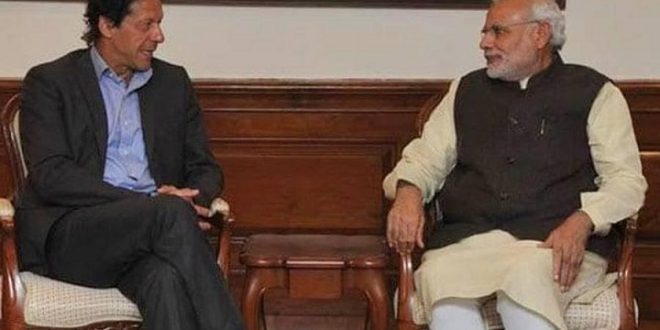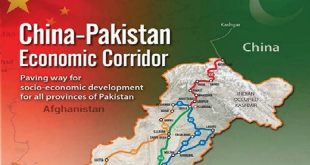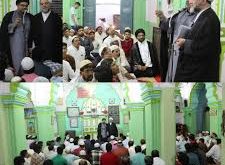18 July, 2019
By Atta Rasool Malik
Unlike in Pakistan, general elections in India are quite lengthy and tiring. The current poll is being conducted in phases spread over a month. It started on April 11 and will continue until May 19, with the final result announced on May 23.
Although Pakistan-bashing is one of the primary election factors in India, there is one place – Tehsil, Gurdaspur, in Indian Punjab – that is quite different. There, though the fight for the parliamentary seat is between Sunny Deol, the Bollywood star of the Bharatiya Janata Party (BJP), and Punjab Congress chief Sunil Jakhar, the politician ruling the hearts of the people is definitely Pakistani Prime Minister Imran Khan.
The Kartarpur Corridor dominates the minds of the people of Gurdaspur, although other issues are also quite pressing. The voters there do not give credit for the Kartarpur Corridor to Indian Prime Minister Narendra Modi. For them, the heroes are Imran Khan and another cricket player turned politician who is now a minister in the Punjab government, Navjot Singh Sidhu.
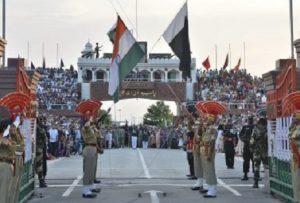 The Kartarpur Corridor is a proposed corridor between India and Pakistan, connecting the Sikh shrines of Dera Baba Nanak Sahib (Punjab, India) and Gurudwara Darbar Sahib Kartarpur (Punjab, Pakistan).
The Kartarpur Corridor is a proposed corridor between India and Pakistan, connecting the Sikh shrines of Dera Baba Nanak Sahib (Punjab, India) and Gurudwara Darbar Sahib Kartarpur (Punjab, Pakistan).
Currently, the corridor is supposed to allow Sikh devotees from India to visit the Gurudwara in Kartarpur, 4.7 kilometers from the Indo-Pakistani border, without a visa.
Last August, Sidhu announced that Pakistan Army chief Qamar Javed Bajwa had told him that Pakistan would open the Dera Baba Nanak-Kartarpur corridor on Guru Nanak’s 550th anniversary.
On November 28, Prime Minister Khan laid the foundation stone for the Kartarpur Corridor near Narowal district in Punjab province. The corridor was opened after Khan took over as prime minister, which helped his image, as people hailed him from both sides of the border. It was a good political move by Khan as the talks about the Kartarpur Corridor had carried on for years, but none of his predecessors paid attention to it.
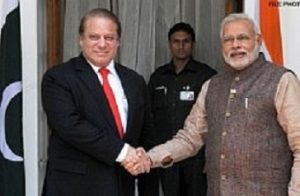 The heart-warming decision was widely welcomed. The pilgrimage helps the Sikh community enrich its tradition in a way it has been long waiting for. It is also believed that the opening of the corridor will help millions of Sikh devotees pay respects at the historic Sri Kartarpur Sahib Gurdwara. The Gurdwara, where the first Sikh Guru spent the last years of his life, is located in Pakistan across the international border and partly visible from Dera Baba Nanak in Punjab’s Gurdaspur district.
The heart-warming decision was widely welcomed. The pilgrimage helps the Sikh community enrich its tradition in a way it has been long waiting for. It is also believed that the opening of the corridor will help millions of Sikh devotees pay respects at the historic Sri Kartarpur Sahib Gurdwara. The Gurdwara, where the first Sikh Guru spent the last years of his life, is located in Pakistan across the international border and partly visible from Dera Baba Nanak in Punjab’s Gurdaspur district.
If France and Germany, enemies during World War II, can have peaceful borders, and West Germany and East Germany could unite, why can’t India and Pakistan have friendly borders? Khan during the Kartarpur Corridor’s opening ceremony.
The Indian government claims that the construction work on the proposed corridor is being completed on a war footing, but the situation on the ground is different. The work is being delayed due to small issues. The Indian government has identified 20 hectares of land, but permissions from various agencies are still pending. The only vantage point in India from which devotees were able to take darshanat the holy site was demolished quite in haste. The pace of work is quite slow and the Sikh community is now even more anxious to complete the project as soon as possible. However, the work on the Pakistani side is well underway.
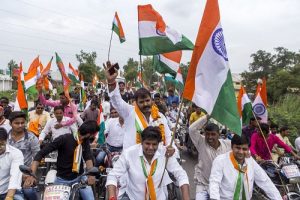 India, on the other hand, remains suspicious regarding this issue, as the Khalistan independence movement may gain traction again. Punjabi is a common language across the border and people-to-people contact may not be in India’s interest. The Indian Sikh community is not very happy with Hindutva‘s discrimination against all non-Hindus in India.
India, on the other hand, remains suspicious regarding this issue, as the Khalistan independence movement may gain traction again. Punjabi is a common language across the border and people-to-people contact may not be in India’s interest. The Indian Sikh community is not very happy with Hindutva‘s discrimination against all non-Hindus in India.
The core issue between India and Pakistan is Kashmir. Pakistan’s claim to Kashmir via its Muslim-majority population was a fundamental principle on which the subcontinent was divided; India lays claims to Kashmir via the Hindu leadership of Kashmir, which ceded itself to India when there was an uprising against the ruler of Kashmir. The conflicts over Kashmir ended in a stalemate as the United Nations issued a mandatory order to stop the fighting over Kashmir and called for a referendum to be held within a resonable period of time.
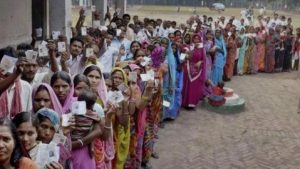 Pakistan and India must reconcile and be civil about Kashmir. A final referendum should be held so Kashmiris can decide whether to go or stay, as it is the most democratic and helpful solution.
Pakistan and India must reconcile and be civil about Kashmir. A final referendum should be held so Kashmiris can decide whether to go or stay, as it is the most democratic and helpful solution.
The founding fathers of both India and Pakistan imagined both countries acting well together. The Quaid-e-Azam, Muhammad Ali Jinnah, the founding father of Pakistan, wanted relations with India to be as close as those of the United States and Canada today. However, people are wondering if Pakistan and India will start a nuclear war with each other.
It is true that the Kartarpur Corridor gives Pakistan a huge international benefit. It will further enhance Pakistan‘s image in the global Sikh community. Pakistan has begun to enjoy substantial soft power in India. Pakistan already enjoys great influence and respect in the eyes of Indian Muslims. It is believed that the Pakistan factor will dominate Indian general elections for many years to come. India should accept the ground reality and resolve the issue through talks.
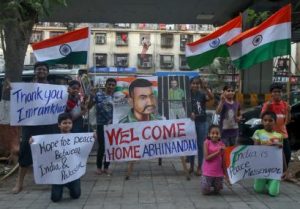 Sunil Jakhar, the Congress parliamentarian from Gurdaspur, while addressing a rally, said: “People have realized that if you want to open the corridor, then Modi is not the answer. He talks about nuclear weapons; he does not want peace. One has to realize the BJP is against all minorities, be it Christians, Muslims and even Sikhs.”
Sunil Jakhar, the Congress parliamentarian from Gurdaspur, while addressing a rally, said: “People have realized that if you want to open the corridor, then Modi is not the answer. He talks about nuclear weapons; he does not want peace. One has to realize the BJP is against all minorities, be it Christians, Muslims and even Sikhs.”
It is for the people of India to decide the future of their coming generation. The people of Pakistan want them to have a government that believes in inclusive politics and does not promote the superiority of specific castes or communities. The people in this region want peace.
 Pressmediaofindia
Pressmediaofindia
